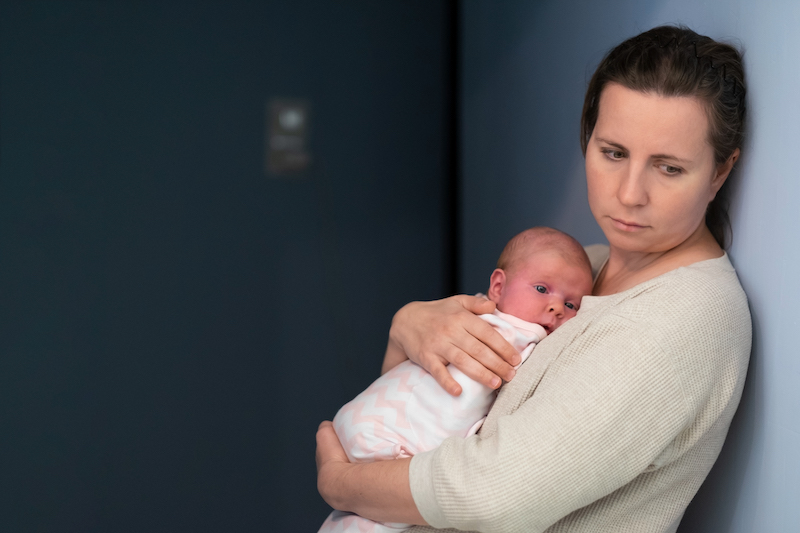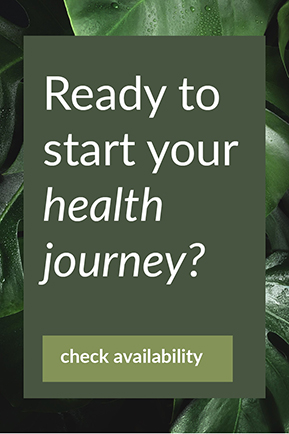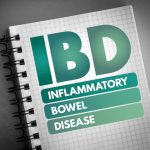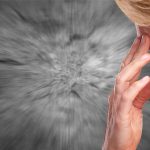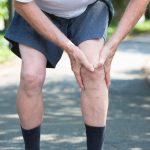Please know that it is extremely common for new mums to become rundown during this time which I call the fourth trimester. The perfect storm of lack of sleep, high stress & a hormonal rollercoaster after giving a huge amount of your nutrition to your baby throughout pregnancy and breastfeeding, can take a toll. And then there is the challenge of supporting and bonding with your baby and navigating the practice of breastfeeding.
Restoring nutrient stores especially if your diet prior & during pregnancy was not optimal is a critical KPI for your health and wellbeing.
As a naturopath, supporting women throughout preconception, pregnancy and post-partum recovery is important for mum, baby, and the whole family.
Whilst the baby blues is quite common following the first week after delivery, it usually begins to subside by week two or thereabouts. Postnatal depression on the other hand is a different condition entirely and can appear in the first 6 months after delivery and strike a debilitating blow for many, making motherhood an incredibly challenging time.
Supporting women so that they may understand and be aware of some of the signs of post-natal depression is critical in getting support early and recognizing when it’s time to ask for help.
In my clinic, we have mental health professionals to support women at this time working alongside myself and it’s important that your GP is fully aware of what is occurring for you also. Having a wholistic team to nurture you back to physical and emotional can be very important.
The postpartum period is a time of immense physical and emotional change, as you not only recover from pregnancy and childbirth, but also move into a brand-new phase of life: motherhood. This is a period that can bring stress, exhaustion and overwhelm, but for some, the postnatal period can also lead to mental health challenges too, with postnatal depression (PND) affecting 10-12% of postpartum women in Australia. This handout looks at postnatal depression, its underlying factors, and naturopathic strategies for coping with PND.
About Postnatal Depression
The Baby Blues vs. Postnatal Depression
The baby blues is an extremely common experience – between 50-85% of women experience the baby blues, which is a period of increased emotional sensitivity and teariness, peaking at around 4 or 5 days after giving birth. Post-natal depression, however, is a more significant mental health condition. PND can begin any time after delivery and up to one year after giving birth. Post-natal depression can be debilitating, yet many mothers delay seeking treatment.
Risk Factors and Underlying Causes
Some of the risk factors and underlying causes for developing postnatal depression include:
- Antenatal depression (depression that begins during pregnancy) or a history of depression
- Being in poor physical health
- Experiencing financial hardship
- Lack of partner support or relationship issues
- Lack of social support
- Having a Caesarean section delivery or a negative birth experience may also increase the risk
- Hormonal changes – significant changes to your hormones, including a drastic drop in oestrogen levels, can lead to depressive symptoms.
- Nutritional deficiencies – many women are nutritionally depleted following pregnancy and childbirth. Nutrients such as vitamin B12, folate, vitamin D, zinc, iron, and omega 3 fatty acids are all commonly depleted in postpartum women and are associated with an increased risk of developing PND.
Symptoms
Symptoms of postnatal depression include:
- Low mood and severe mood swings
- Excessive crying and sadness
- Brain fog, difficulty concentrating
- Fatigue, low energy, insomnia, or excessive sleeping
- Difficulty with remembering or concentrating
- Trouble bonding with your baby
- Loss of appetite, or significantly increased appetite
- Loss of interest in things you sued to enjoy & normal activities
- Feelings of hopelessness, worthlessness, shame, or guilt
- Feeling like you’re not a good mother
- Feelings of anger – towards self, children, and/or partner
- Extreme concern & worry about your baby
- Thoughts & fear about harming yourself or your baby
It is important to know that many of the symptoms mentioned above may also overlap with common depressive disorders, so if you do have a history of depression or a mental illness, it is important that you reach out for support as your risk factor in development post-natal depression is higher. For those mums without previous depression however, you are still at risk.
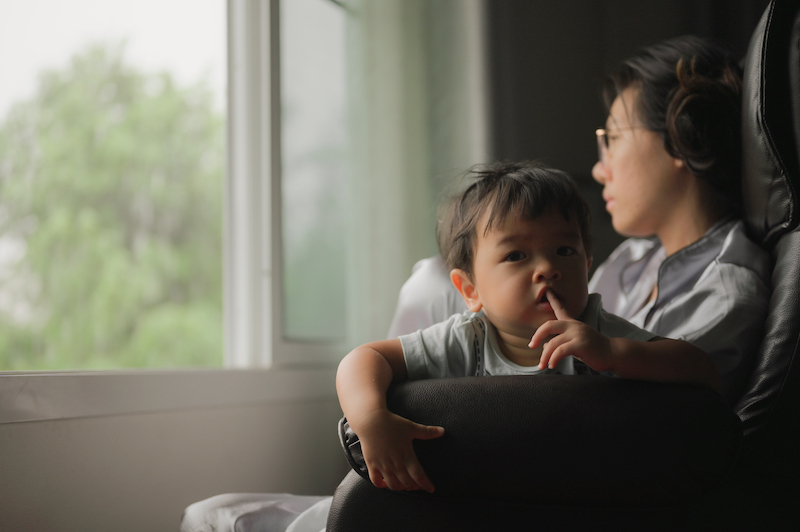
Understanding changes in your body that occur at this time
There are a number of changes in your reproductive & stress hormones that play a part in post-natal depression and when combined can lead to the “perfect storm” of post-natal depression.
Estrogen and progesterone: Bothof these reproductive hormones go into sharpdecline following the birth of your baby.
Oxytocin: this hormone has a huge role in bonding with your baby which is why it is known as the love hormone. Lower levels of this important hormone is thought to play a role in post-natal depression. As breast feeding is associated with higher mean oxytocin levels in scientific studies, breastfeeding may have a positive impact.
Cortisol: this stress hormone increases throughout pregnancy with a drop after birth until it fully normalises over several months.
Naturopathic Testing in Postnatal Depression
With post-natal nutrient depletion being so common, some standard tests that may be ordered due to their role in mood, energy and recovery may include:
- Full blood count
- Iron studies
- Thyroid panel
- Serum vitamin D
- Serum vitamin B12 and folate
- Hormonal profile including progesterone (depending on how long ago you gave birth)
Dietary Strategies for Post Natal Depression
From physically recovering after childbirth, to accounting for the increased nutritional demands of breastfeeding, your body is in great need of vital nutrients after giving birth. Supporting yourself nutritionally is also important for your mental health – studies have shown that deficiencies in key nutrients, including folate, iron, vitamin D, and essential fatty acids, can increase the risk of postnatal depression. Please refer to my postpartum recovery blog here for detailed nutritional suggestions, and my blog on post-natal depletion which also highlights specific nutrients.
Specific Nutrients for Post-Natal Depression
These are unique to each person however common deficiencies include iron, Vitamin D, B vitamins and magnesium. It is important you seek professional advice especially if you are breast-feeding.
Herbs for Postnatal Depression
As with supplements, herbs need to be prescribed with an understanding of where you are at with breastfeeding, however the following herbs are all generally considered safe during postpartum and breastfeeding and may be prescribed to help you.
St John’s Wort
St John’s wort is a wonderful mood lifting herb that works by increasing your serotonin levels. It also reduces anxiety and promotes a feeling of calm. Be aware that St John’s wort is not safe to take at the same time as conventional anti-depressant medications.
Ashwagandha
Ashwagandha is a wonderful restorative tonic. This herb can help you to cope with the new stressors in your changing life, improve your immune response, and can also help to boost your iron levels, too.
Nettle
Nettle leaf is considered to be one of the most nutritive plant foods known, with a high content of many important minerals such as zinc, calcium and magnesium, so it makes a wonderful herb for replenishing your nutrient status in the postpartum period. Nettle can be taken as a herbal extract or as a tea.
Oats Seed
Oats seed extract is a wonderful, nutritive and restorative herb. It can also help you to feel calmer and less anxious and is healing to the nervous system.
Skullcap
Skullcap is a gentle nervous system restorative herb that can help to reduce feelings of anxiety and boost mood.
Lifestyle
Enjoy Daily Exercise
Daily physical movement or exercise is a must for mental health. If you are still in the early recovery phase of your postpartum journey, please be mindful that you are recovering from a major physiological event and should treat your body with care while you are healing. Go slow and build up as you feel up to it. Gentle activities such as walking, and yoga are ideal at this time. If you can, combine your physical movement with some morning sun exposure, as this will help you to boost your vitamin D levels, balance your cortisol, and will also be beneficial for baby as they establish their circadian rhythm. If you are feeling physically recovered and are past the fourth trimester phase, you can push yourself to do higher intensity activities, including team sports, jogging, swimming, HIIT, and even weightlifting. Find activities that you are motivated to participate in and enjoy, as this will make it easier for you to commit to doing them each day. Lean on your partner, family, and friends to help you with childcare while you exercise or look into joining a gym with a creche.
Prioritise Rest, Especially in Early Postpartum
During the first 12 weeks postpartum, bonding with baby and resting often should be the priority. Delegate tasks to other people in your life as much as possible, so that you can keep your focus where it is needed. Beyond the fourth trimester, resting when you need to is still important! Sleep is needed not just for physical health but for mental health, too. When we are asleep our brains repair and renew themselves, reducing inflammation and clearing away toxins. Without adequate sleep, these processes can’t be properly done, which can worsen mental health symptoms. Prioritise sleep and don’t be afraid to nap when you need some extra rest. Negotiate with your partner a schedule that works for both of you to get enough sleep.
Speak to a Professional
If you don’t already have a regular counsellor or psychologist, it is worthwhile pursuing this. Cognitive behavioural therapy has been found to be an effective treatment strategy for women with postnatal depression and speaking to a professional psychologist or counsellor is an important step for anyone experiencing postnatal depression. Here at Performance in Health we are lucky to have many great mental health professionals on the team who can help with both in-person and virtual appointments.
Share the Parenting Workload
Many new mums try to take on the additional workload of parenthood on their own, or try to keep partner support to a minimum, especially if their partner is back at work. However, this can make your workload overwhelming. Speaking to your partner about how you can both share the workload in a way that works for you both is important. Likewise, your baby will benefit from receiving care from both parents. This includes nappy changes, bathing, feeding (if not exclusively breastfed), and settling.
Make Time for Social Engagement
Motherhood with a newborn can feel isolating, especially if you are a new mum, but social connection and support are vital for lasting mental wellbeing. We are social creatures and need that connection in our lives Making time for social engagement and connection can help you to feel less alone. Friends and family have a positive influence and finding friends who are in a similar life stage to you can make a big difference. If you don’t have friends who are also parenting babies and young children, try reaching out to your local play group to find other local parents.
Additional Tips for Coping with Postnatal Depression
- Remember that this is a challenging experience for all new parents – you are not alone in feeling the way you do!
- Accept help from family and friends and don’t be afraid to delegate tasks to visitors when they come by, so that you can focus on rest, bonding with baby, and self-care. Tasks such as hanging out washing, emptying the dishwasher, and even cleaning the bathroom can be easily delegated!
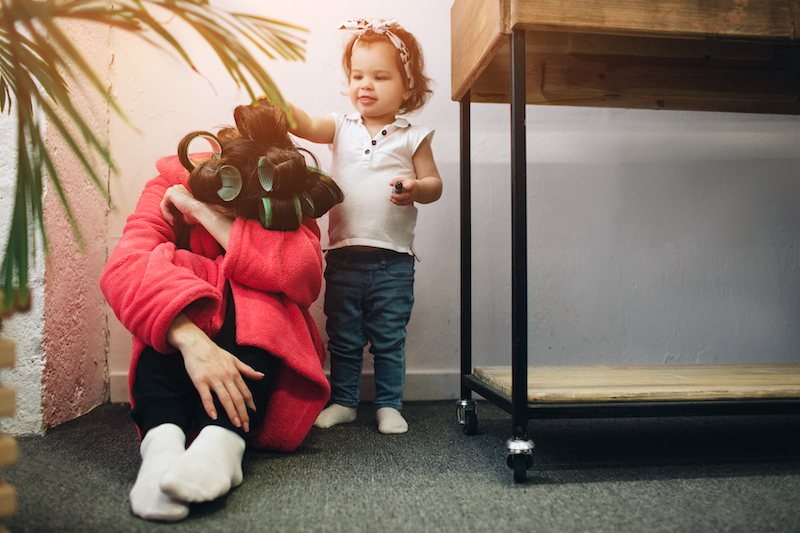
Additional Resources
The following additional resources may be useful to you:
PANDA
PANDA (Perinatal Anxiety and Depression Australia) is a dedicated organisation for helping parents coping with perinatal anxiety and depression. They have a dedicated helpline that you can call Mon-Sat on 1300 726 306 and offer lots of useful information on their website – www.panda.org.au
Beyond Blue
Beyond Blue have a 24/7 helpline that can connect you with a mental health professional any time. Call 1300 224 636
Lifeline
If you need urgent crisis support or are having suicidal feelings, Lifeline is available 24/7 by calling 13 11 14
For thorough naturopathic support in nurturing your body back to health, please reach out for an initial consultation or fact find call via my contact tab here
References
Amer, C. (2022, June). An RD’s guide to postpartum nutrition, plus easy postpartum meals. https://www.humnutrition.com/blog/postpartum-nutrition/
Ball, L., de Jersey, S., Parkinson, J., Vincze, L., & Wilkinson, S. (2022). Postpartum nutrition: Guidance for general practitioners to support high-quality care. Australian Journal of General Practice, 51(3).
Bell, A. F., & Andersson, E. (2016). The birth experience and women’s postnatal depression: A systematic review. Midwifery, 39, 112–113.
Bone, K. (2003). A clinical guide to blending liquid herbs: Herbal formulations for the individual patient. Elsevier.
Elwood, J., Murray, E., Bell, A., Sinclair, M., Kernohan, W. G., & Stockdale, J. (2019). A systematic review investigating if genetic or epigenetic markers are associated with postnatal depression. Journal of Affective Disorders, 253, 51–62.
Huang, L., Zhao, Y., Qiang, C., & Fan, B. (2018). Is cognitive behavioural therapy a better choice for women with postnatal depression? A systematic review and meta-analysis. PLOS One.
Minerva Natural Health and Fertility. (2021, November). Postpartum nutrition goals. https://minervanaturalhealth.com.au/2021/11/14/postpartum-nutrition-goals/
Ogbo, F. A., Eastwood, J., Hendry, A., Jalaudin, B., Agho, K. E., Barnett, B., & Page, A. (2018). Determinants of antenatal depression and postnatal depression in Australia. BMC Psychiatry, 18.
Ou, C. H. (2018). Anger in the context of postnatal depression: An integrative review. Birth Issues in Perinatal Care, 45(4), 336–346.
Rochford, T. (2022). Simple postpartum diet and nutrition tips. https://tararochfordnutrition.com/simple-postpartum-diet-and-nutrition-tips/
Sparling, T. M., Henschke, N., Nesbitt, R. C., & Gabrysch, S. (2017). The role of diet and nutritional supplementation in perinatal depression: A systematic review. Maternal and Child Nutrition, 13(1).
Sparling, T. M., Nesbitt, R. C., Henschke, N., & Gabrysch, S. (2017). Nutrients and perinatal depression: A systematic review. Journal of Nutritional Science. https://doi.org/10.1017/jns.2017.58
Whitley, J., Wouk, K., Bauer, A. E., Grewen, K., Gottfredson, N. C., Meltzer-Brody, S., Propper, C., Mills-Koonce, R., Pearson, B., & Stuebe, A. (2020). Oxytocin during breastfeeding and maternal mood symptoms. Psychoneuroendocrinology, 113, 104581. https://doi.org/10.1016/j.psyneuen.2019.104581

